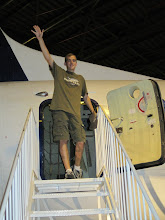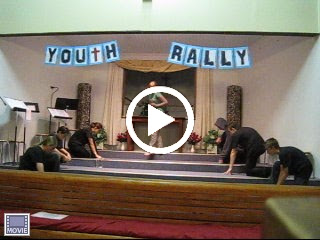He rapidly promoted through the ranks of the militia to major, holder of a steady salary. He was very young for such trust to be placed in his hands, being in his late teens to early twenties.
The years that he was living in were dangerous times. Europe was arming itself for yet another conflict. The French and the British both had colonies in North America; both nations wanted to edge the other out. The Americas was a plum for trade and expansion.
The French were trying to connect their Canadian colonies with their Louisianan colonies. By doing this, it would hinder British expansion and put the thirteen colonies into a deadlock . The French could attack the colonies from their entire frontier border. In addition, France had joined Austria, her traditional enemy, along with Russia and Sweden, to bring Frederick the Great of Prussia back to size. Great Britain jumped on board with Prussia, with Spain joining later on the French side. The war in Europe, 1756-1763, was called the Seven Years War; the American colonists called it the French and Indian War. This war covered most of the globe, with fighting raging from Europe to America, from India to Africa. In all reality, this could be coined World War I.
The results this war had on American history is far reaching. At the end, with the British victorious, and the French driven from the North American continent, the Colonists were left emboldened with the fear of French invasion removed. It also gave Washington the experience he would later need while fighting the War of Independence.
The French had constructed a fort, Fort Le Boeuf, on the south of Lake Eerie, in 1753, on territory granted to the Virginian colony by King James. The governor of Virginia sent Washington to the fort to demand that they leave. "It is clear enough that Washington, despite his youth, was considered equal to his diplomatic task." [1]
Washington immediately left for the fort. The journey wasn't easy; winter was approaching. The French didn't care much about the British orders to leave their territory, and cordially refused to leave the land. They said it was part of the Old Dominion, and therefore was French. In addition, they planned to expand further as soon as spring came; Washington was sent away empty handed. The journey home nearly claimed Washington's life a couple of times. In one instance, he was thrown from the raft into an icy river. Yet, he was amazingly able to get back onto the raft, when his companion thought he was lost. "In this dangerous situation, he was saved by the protecting hand of God." [2]
Because he had done his duty so well he was promoted to the rank of Lieutenant Colonel in Virginia's militia. The word Washington brought back raised a flurry of action from the British. Governor Dinwiddie was furious and ordered Washington, in the spring of 1754, to erect a fort on the north side of Lake Eerie and not let the French pass, and if they tried, he gave him orders to fight them.
Washington was dutiful, and thus it was he who ordered the first shots to be fired. A small French force advanced to try and hinder the building of the British fort; Washington marched out and defeated the French. He was promoted to the rank of Colonel for his victory and daring. "I heard the bullets whistling, and believe me, there is something charming to that sound." [3]
A large French force marched on him to avenge the previous skirmish. The militia weren't ready, and the hastily constructed fort, Fort Necessity, was easily captured by the French. Washington was able to negotiate for he, and his soldier, to march home with all of their weapons and supplies but they had to abandon the fort.
During the course of the next few months, the king of England ordered that any British officer would outrank a Colonial officer, regardless of his rank or experience. Washington was offended and resigned. His elder brother had just died and he inherited Mount Vernon. He was busy putting his estates in order when he was invited by General Edward Braddock, the British general sent to capture Fort Duquesne (formerly known as Fort Necessity). The way to the fort was dangerous, and many of the Indians joined the French; Virginians were brought along because they would know the way. Washington agreed and left Mount Vernon to join the campaign.
[1] George Washington (John Alden)
[2] Life of Washington (Anna C. Reed) p30
[3] George Washington (John Alden) p27









No comments:
Post a Comment